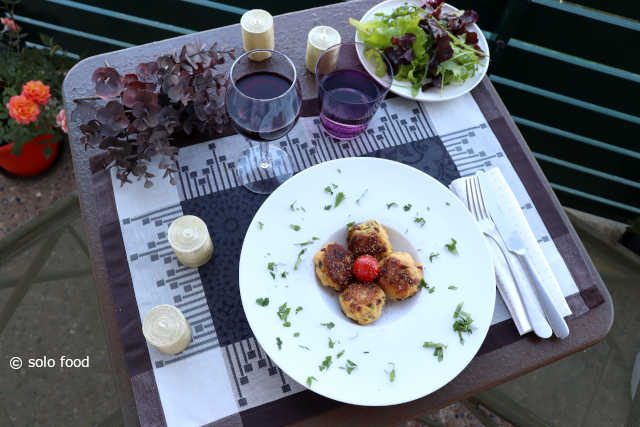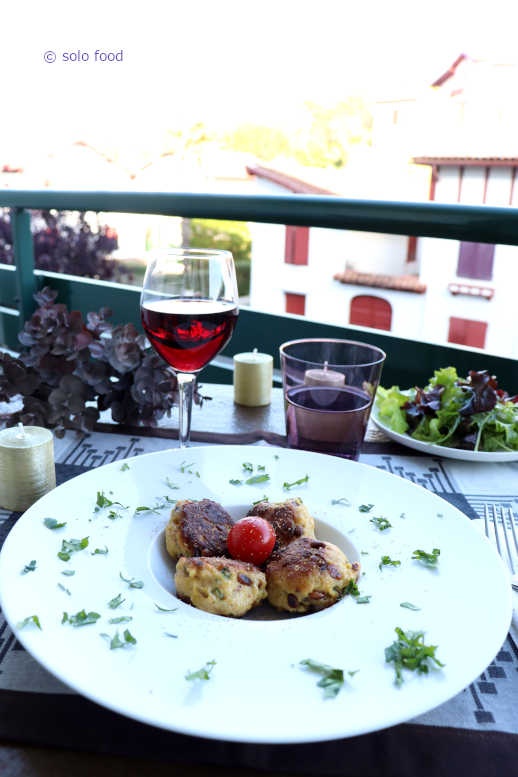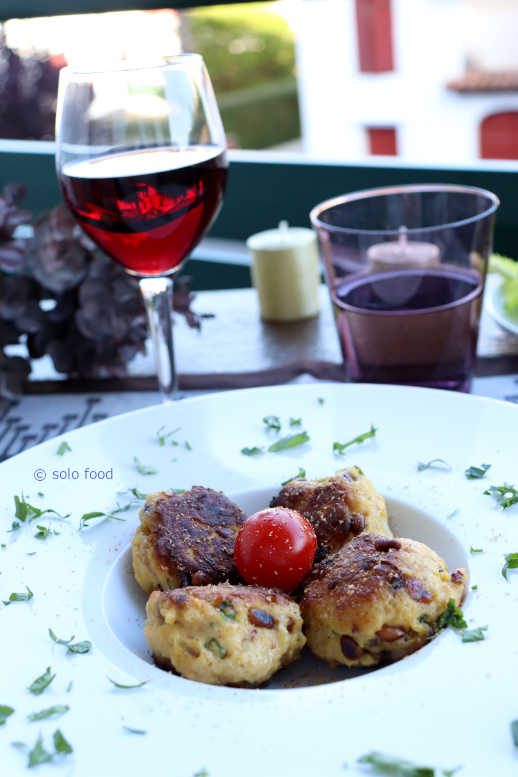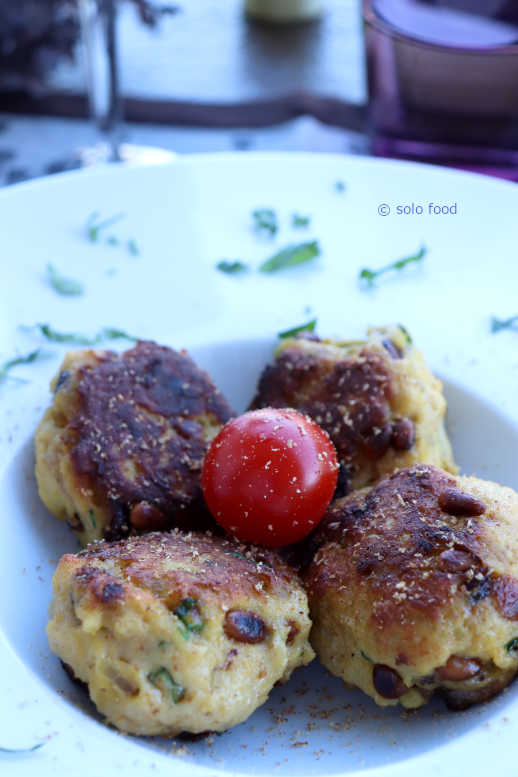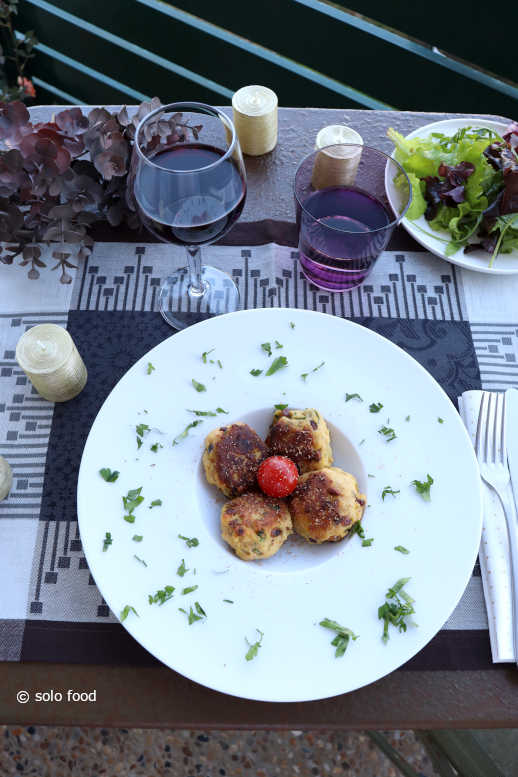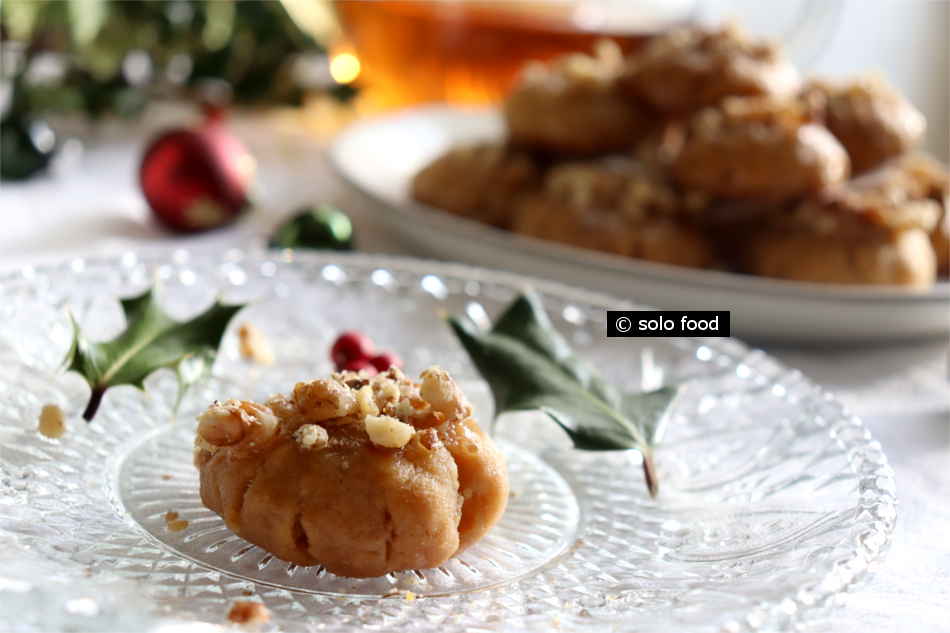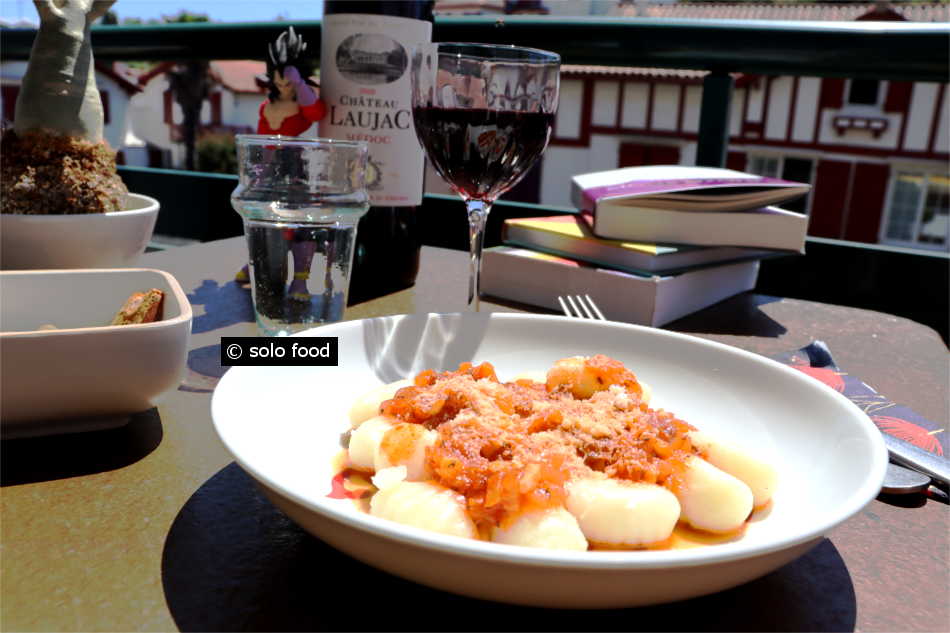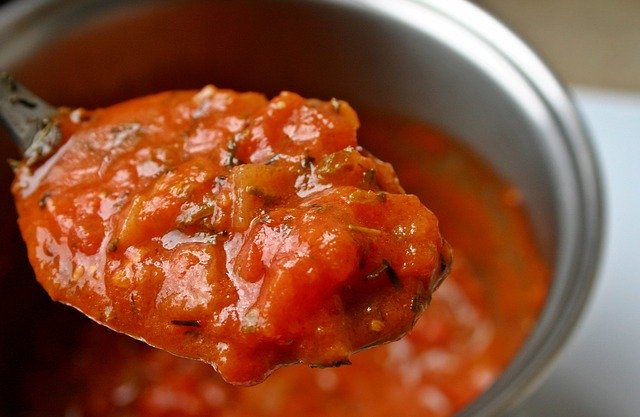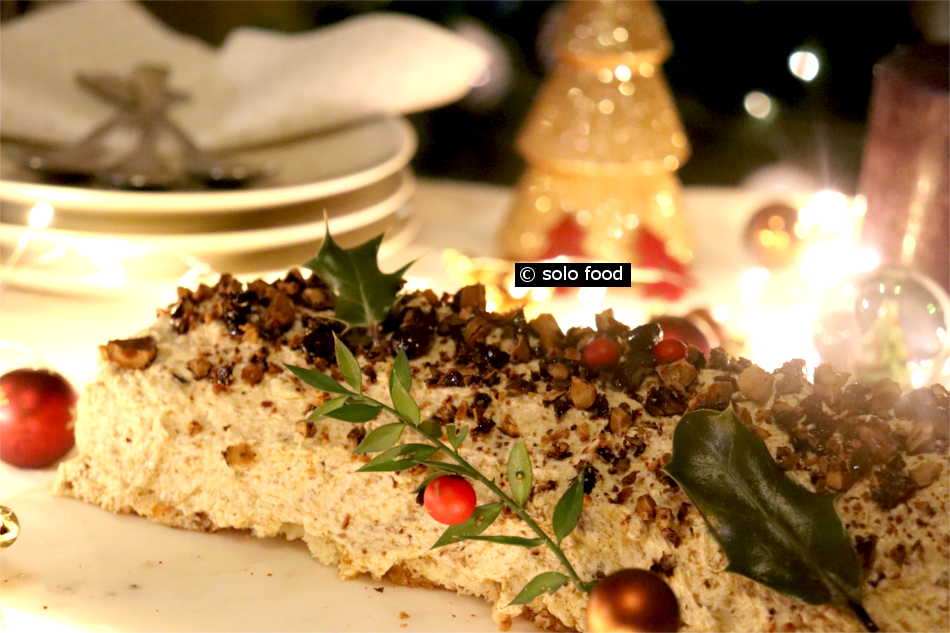Keftas only with eggs? Is this possible? What kind of recipe is this? Well, this is a very old recipe (dates from the 18th century) and it’s unbelievable good, tasteful and delicate! Indeed, it’s possible to make keftas only with eggs! They have an egg cream formed with boiled eggs, and they come with onions, dried raisins and pine nuts! It’s really unbelievable and it’s served with a bit of fresh grated nutmeg on top and some parsley! It’s really good and easy to make and bring the aristocracy in your home! It’s up to you to try!
In two words:“It’s rare to find men”… (and I add women)…“who have the force to think as well as the force to act fast”
Johann Wolfgang von Goethe, Wilhelm Meister. Les années d'apprentissage (trad. Mme la baroonne Aloïse de Carlowitz) Tweet
difficulty – easy
preparation- 10’ + 30’ resting in the refrigerator or 15’ at the freezer
cooking - 10’ (for the boiled eggs) +5’ (for the keftas)
serves - 11 keftas of medium size
Ingredients
- 6 eggs
- 2 tablespoons of egg white
- 30gr of flour
- 15gr of dried dark raisins (eg from Corinth)
- 30gr of pine nuts
- ¼ onion of medium size
- ½ teaspoon of olive oil
- 3-4 branches of parsley
- 2 pinches of fleur de sel or coarse salt
- 10 turn mills of Kampot black pepper
- 20gr of butter
- freshly grated nutmeg
Steps
- Add cold water into a casserole
- Place the eggs into the casserole by placing them first onto a tablespoon and then dipping them into water
- Cook the eggs for 10’ starting from cold water to have nicely boiled eggs at the end (check the cooking eggs tip on Martha’s Stewart video )
- Peel and chisel finely the onion
- Wash and chisel the parsley
- Chop the raisins in small pieces using a kitchen knife
- Heat-up a pan
- Once the pan is hot, add the pine nuts and roast them by turning them constantly with a wooden spoon until they get a nice caramel color
- Remove from heat and add them into a bowl
- Clean-up the pan with enough kitchen paper to avoid burning yourself
- Heat-up the pan again
- Add the onion without any oil
- Stir in the onion until it starts to shine
- Add the olive oil and stir in again until it gets a nice caramel color as well
- Remove from heat and let cool a little bit
- Once the eggs are ready, add them in a bowl with cold water, and let them cool a little bit
- When the eggs are cold enough, start peeling the eggs and place them in an electric chopper
- Turn on the machine and insist long enough until a cream is formed
- Add this cream of eggs into a bowl
- Add salt and pepper and stir with a rubber spatula
- Add the chopped dried raisins and the pine nuts
- Stir again with the rubber spatula
- Add the onions and stir
- Add the chopped parsley and stir again
- Add the egg white
- Toss again
- Start adding the flour by batches and stir after each addition
- At the end, you will have a mix that will be solid enough as to form the keftas with your hands
- Form 11 keftas of medium size and place them in a dish
- Cover-up with plastic wrap and place in the refrigerator for about 30’ or in the freezer for 15’
- Heat-up a pan
- Add the butter and once it’s melted and hot, place the keftas and wait
- Cook the keftas on both sides until they get some color on all sides
- Remove from heat and serve immediately with some freshly grated nutmeg on top and some parsley
- It’s very good and delicate and it’s best eaten with a green salad with chopped onions and Xérès vinegar (or any other red wine vinegar)
- :-)
What’s the story behind this recipe?
To celebrate the 200 years from the Greek revolution against the Turks, the Greek magazine γαστρονόμος (www.gastronomos.grdedicate its March issue to a manuscript with recipes found in the public library of Halkida city and which is the first Greek recipes book ever found.
This manuscript dates from the end of the 18th century, beginning of the 19th century (just before the revolution of 1821). It was discovered and brought to light by the Greek researcher Agamemnon Tselikas who is an expert in discovering and researching rare manuscripts and not only Greek ones!
It contains 860 recipes in which 366 have original additions made by the Author, who is still unknown but who surely was an epicurean (judged from his manuscript) and most probably a Chef :-)
The manuscript has the title “Βαρήνις ο Γαλλικός μάγειρας και άλα” which means « Varenne the French Chef and other stories » and which is a translation of an Italian edition of 1781 with the title “Il Cuoco Francese” which in his turn means “The French Chef”. Both documents are referring to the French Chef François Pierre de la Varenne (1615-1678), who was well-known at his time, and had written a book translated in many languages. The first edition of his book, as M. Tselikas says, had the title “Le Cuisinier François” and it was edited on 1651, since then, this book had known many editions and was translated in Italian and in English and was considered as the most important cooking and baking book of the 17th and 18th century.
This recipe comes from this manuscript and I followed the original instructions given by Chef/Author of the manuscript and not its interpretation by recent Greek Chefs as it was presented in the magazine!
Inspiration
Cette recette vient du manuscrit grec de l’écrivain inconnu mais épicurien pour de vrai comme décrit dans la petite histoire par-dessus 🙂 Elle faisait partie des recettes qui ont été présentées dans la presse grecque (γαστρονόμος, Μάρτιος 2021, σελ. 101) pour fêter le bicentenaire de la révolution contre les Turcs ! Selon les rédacteurs, elle devait être faite dans des maisons bourgeoises ou riches de l’époque !
Please note that magazine authors suggest to drink with this recipe some Champaign (rosé or white) or light and somehow fruity white wines or even liquorish wines.
When I made the recipe, I wanted to drink some red wine, as you can see in the picture, and it went well! Next time, when I will make this recipe, I will try to follow the magazine’s author suggestions and tell you all about it! Except if you make it before I do :-)
Tip
To make perfect eggs check the video of Martha Stewart on the subject.
o-o C'est si bon ! o-o
- Categories: Greek Food, Vegetarian Food, Special Food, Eggs, Recipes
- Ingredients: flour, freshly grated nutmeg, eggs, onion, parsley, pine nuts, raisins secs


